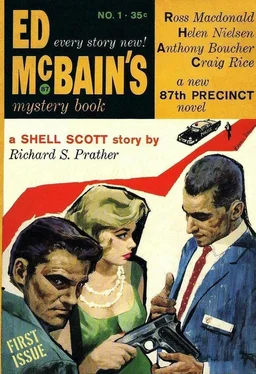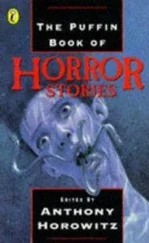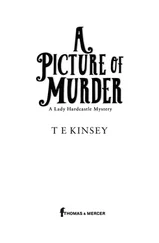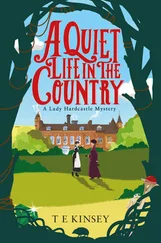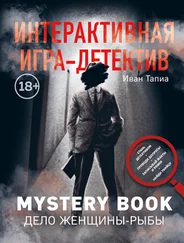Anthony Boucher - Ed McBain’s Mystery Book, No. 1, 1960
Здесь есть возможность читать онлайн «Anthony Boucher - Ed McBain’s Mystery Book, No. 1, 1960» весь текст электронной книги совершенно бесплатно (целиком полную версию без сокращений). В некоторых случаях можно слушать аудио, скачать через торрент в формате fb2 и присутствует краткое содержание. Город: New York, Год выпуска: 1960, Издательство: Pocket Books, Жанр: Детектив, на английском языке. Описание произведения, (предисловие) а так же отзывы посетителей доступны на портале библиотеки ЛибКат.
- Название:Ed McBain’s Mystery Book, No. 1, 1960
- Автор:
- Издательство:Pocket Books
- Жанр:
- Год:1960
- Город:New York
- ISBN:нет данных
- Рейтинг книги:5 / 5. Голосов: 1
-
Избранное:Добавить в избранное
- Отзывы:
-
Ваша оценка:
- 100
- 1
- 2
- 3
- 4
- 5
Ed McBain’s Mystery Book, No. 1, 1960: краткое содержание, описание и аннотация
Предлагаем к чтению аннотацию, описание, краткое содержание или предисловие (зависит от того, что написал сам автор книги «Ed McBain’s Mystery Book, No. 1, 1960»). Если вы не нашли необходимую информацию о книге — напишите в комментариях, мы постараемся отыскать её.
Ed McBain’s Mystery Book, No. 1, 1960 — читать онлайн бесплатно полную книгу (весь текст) целиком
Ниже представлен текст книги, разбитый по страницам. Система сохранения места последней прочитанной страницы, позволяет с удобством читать онлайн бесплатно книгу «Ed McBain’s Mystery Book, No. 1, 1960», без необходимости каждый раз заново искать на чём Вы остановились. Поставьте закладку, и сможете в любой момент перейти на страницу, на которой закончили чтение.
Интервал:
Закладка:
“Tell them, Ronnie! Tell them!”
Suddenly Ronnie was on his feet.
“All right!” he yelled. “I killed her. I ran over that woman on the highway and killed her! Now leave us alone... leave us alone!”
After he signed the confession, Ronnie was left alone for about two hours. He was exhausted, and so he slept. When the deputy awakened him, the sky had turned black outside the windows. He was taken to the front office where Sheriff Thompson was talking earnestly to two state troopers and an officious-looking man who was scanning the confession. Seated beside the sheriff’s desk was Lisa. She looked pale and sick.
“Ronnie,” Sheriff Thompson said, “this is Mr. Winters from the District Attorney’s office.”
Winters peered at Ronnie through thick-lensed glasses.
“Were you coerced into signing this confession?” he asked.
Ronnie hesitated. He looked at the sheriff, then at the deputy.
“Were you abused — maltreated? Were you subjected to physical violence?”
“No, sir,” Ronnie said.
“You were panicked, is that it?”
Ronnie glanced at Lisa. She stared at her hands in her lap.
“Yes, sir,” he said.
“All right, Thompson. Let him go.”
Ronnie turned toward the sheriff, bewildered.
“What happened?” he asked.
Sheriff Thompson unlocked his desk and took out Ronnie’s personal belongings.
“A car full of half-drunken kids were picked up about an hour ago,” he said. “They were driving an old Caddy. The right front fender was dented with particles of blood and hair ground into the dent. The right front lens was broken, and the glass fragments matched those found on the highway near Mrs. Cooley’s body. The fragments from your headlamp don’t.”
Ronnie’s mind was suddenly racing. The wild kids in the Caddy — they must have smashed his headlamp with one of those bottles. But that still left one thing unexplained.
“Matt Cooley—” he said.
The sheriff handed him his car keys.
“Yes,” he said bitterly, “Matt Cooley. A man suffering from grief and shock can make an awful fool of himself. He wanted to hurt you because he had been hurt. He wanted the comfort of thinking he was somehow avenging his wife’s death. Try to think of it that way, son. It’s always easy to make ourselves believe what it’s comfortable to believe.”
Driving home, Ronnie had plenty of time to think about that. He didn’t mention going on to Vegas. Lisa didn’t mention it either — or anything else, until he was depositing her at her father’s driveway.
“Ronnie,” she said, “I only begged you to confess because I was afraid for you. I didn’t want you hurt.”
That was what she wanted to believe. If he hadn’t loathed her so much, Ronnie might have felt sorry for her.
“You might have stood by me,” he said.
“But, Ronnie—”
“You might have said, ‘No, we didn’t hit that woman!’ and if I started to break down and say that we did, you could have said, ‘No, no, no!’ until I couldn’t break!”
And then it hit Ronnie, suddenly, that a woman who really loved a man would fight for him — even if fighting for him meant fighting the weakness in him, instead of just saying meekly: “Yes, sir.”
He couldn’t explain that to Lisa. He gunned the Jaguar and headed for home.
Hard Sell
Craig Rice
“Malone,” the voice said, “you’ve got to help me.”
The little lawyer waggled a finger at Joe the Angel and sat impassive while the bartender poured another double shot of rye. Then he swallowed the rye, reflecting thoughtfully that clients were always turning up when you needed them the least. “I don’t have to help you,” he said without bothering to turn around. “My office rent is paid a month in advance. My secretary is paid a week in advance. My bar tab is paid several drinks in advance. So go away.”
“Money,” said the voice, “is no object.”
“That’s what I’ve been trying to tell you,” Malone said. “Besides, if you want me, why don’t you call me at my office?”
“I tried,” the voice admitted. “I talked to a girl named Maggie. She said this was your office.”
Malone turned around, deciding firmly that Maggie would never again be paid anything in advance. He found himself looking at a large man with iron-gray hair, blue eyes, and a prominent chin. The man looked so healthy that Malone wanted to turn away again. “Go ahead,” he said. “Tell me all about it.”
“Can’t we go someplace private?”
“This is my office,” Malone reminded him. “How private can you get?”
The man looked around vacantly, then back at Malone. “My name is Gunderson,” he said. “Frank Gunderson. Mean anything to you?”
“Nothing,” Malone said. “So far.”
“I sell magazine subscriptions,” Gunderson announced.
“That’s nice,” Malone said pleasantly. “Working your way through college?”
Gunderson looked very unhappy “I don’t exactly sell them,” he explained. “I employ salesmen. Gunderson Sales, Inc. Door-to-door sales of leading magazines. A customer buys one or two magazines and gets another free. It’s a very attractive offer.”
“I’m sure it is,” the little lawyer agreed. “But I can’t read. So you’re wasting your time.”
“You don’t understand,” Gunderson said. “It’s like this, Malone. Somebody’s been killing my salesmen. One after the other, day after day, my men have been murdered.”
“By prospective customers?”
“By a fiend,” Gunderson said. “First Joe Tallmer, struck down brutally by a hit-and-run driver. That was a week ago. Then, two days later, Leon Prince was pushed into an empty elevator shaft. The very next day Howie Kirschmeyer was shoved from an elevated platform and mangled by an oncoming train. And—”
Malone held up a hand, both to silence Gunderson and to summon Joe the Angel. He downed the double rye that Joe poured and fixed sad eyes on Gunderson.
“Accidents,” he said soberly, “can happen.”
“But, Malone—”
“Three accidents,” he went on. “The first one got hit by a car. The second one was too dumb to wait for the elevator. The third one tried to walk across the tracks. It figures, in a way. Anyone dumb enough to sell magazines for a living—”
“You don’t understand,” Gunderson cut in. “There was a fourth one. Just this morning.”
“What happened to him?”
“He was shot through the head with a.45,” Gunderson said. “He’s dead,” he added unnecessarily.
John J. Malone suddenly felt very tired. “Sounds like murder,” he admitted. “But I’m sure the police can take care of it.”
“I don’t see how,” Gunderson said. “The man’s name was Henry Littleton. He was sitting over coffee while his wife was upstairs making the beds or something. Somebody came in, shot him, and left.”
“The gun?”
“It was on the breakfast-room table. No prints, no registration.”
“Hmmmm,” Malone said.
“You see,” Gunderson continued, “the police can do nothing. Littleton wasn’t murdered by someone who knew him. He was murdered for the same reason as Tallmer and Prince and Kirschmeyer.”
“And why were they murdered?”
“I wish I knew,” Gunderson said. “I wish I knew.”
Malone paused to light a cigar. “Come, now,” he said gently. “You must have some idea. Otherwise you wouldn’t be here annoying me.”
Gunderson hesitated. “Malone,” he said, “I don’t want to sound paranoid. Not good, sounding paranoid. But I think someone is trying to ruin me, Malone. Killing my men one after the other. Crippling my sales force. Two of my men quit me today, Malone. Left me cold. Told me they couldn’t take the chance of working for me. One of ’em said he had a wife and kid. Hell, I’ve got a wife and kid. Two kids, as a matter of fact. And—”
Читать дальшеИнтервал:
Закладка:
Похожие книги на «Ed McBain’s Mystery Book, No. 1, 1960»
Представляем Вашему вниманию похожие книги на «Ed McBain’s Mystery Book, No. 1, 1960» списком для выбора. Мы отобрали схожую по названию и смыслу литературу в надежде предоставить читателям больше вариантов отыскать новые, интересные, ещё непрочитанные произведения.
Обсуждение, отзывы о книге «Ed McBain’s Mystery Book, No. 1, 1960» и просто собственные мнения читателей. Оставьте ваши комментарии, напишите, что Вы думаете о произведении, его смысле или главных героях. Укажите что конкретно понравилось, а что нет, и почему Вы так считаете.
